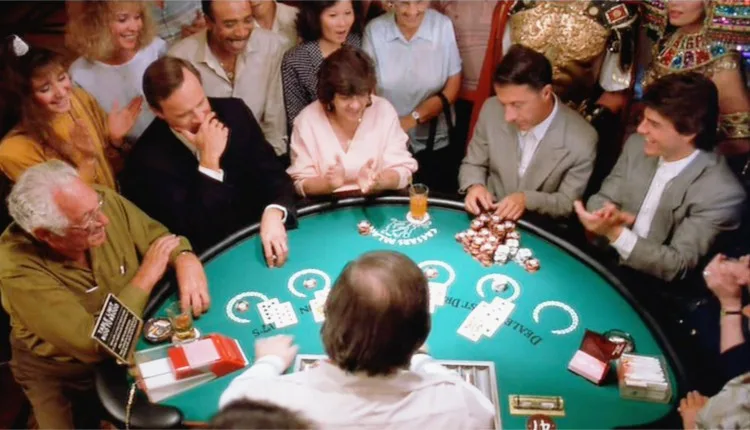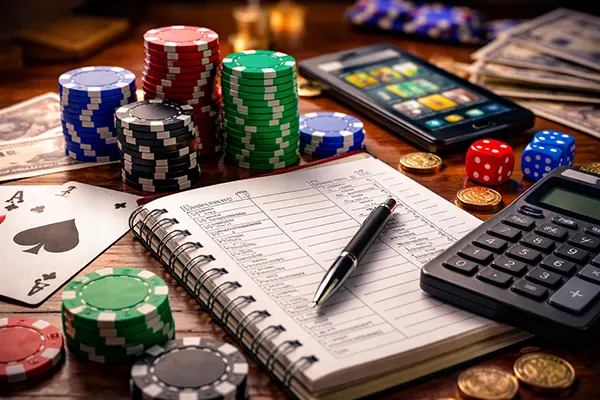
Card Counting in Card Games: Strategy, Use, and Legality
Card counting is a strategy used primarily in blackjack, but it can also be applied to other card games. The fundamental idea behind card counting is to keep a running tally of all high and low-value cards that have been dealt. This enables players to estimate the ratio of high cards to low cards that remain in the deck. By doing this, players can adjust their betting and playing strategies to gain a statistical edge over the house.
The process of card counting involves assigning a point value to each card that is dealt. For instance, in the Hi-Lo system, cards 2 through 6 are assigned a value of +1, 7 through 9 are counted as 0, and 10s, face cards, and Aces are assigned a value of -1. As cards are dealt, the player keeps a running count by adding or subtracting the values. A positive count indicates a higher proportion of high cards remaining in the deck, which is advantageous for the player. Conversely, a negative count indicates a higher proportion of low cards, which is less favourable.
How to Use It and How Does It Help?
To effectively use card counting, players must be able to maintain their running count while also managing their bets and making optimal playing decisions. This requires practice and a good memory, as well as the ability to perform under pressure. In blackjack, a higher count favours the player because it increases the chances of being dealt a natural blackjack (an Ace and a 10-value card), which pays out at better odds than regular wins. It also allows players to adjust their strategies, such as doubling down or splitting pairs, based on the count.
Card counting helps players reduce the house edge significantly. While the house edge in blackjack is usually around 0.5% with basic strategy, card counting can turn the odds in favour of the player by up to 1% or more. This may seem small, but over a long period and many hands, this advantage can lead to substantial winnings. Additionally, card counting provides a systematic way to increase bet sizes when the count is favourable, maximizing potential profits while minimizing losses when the count is unfavourable.
Is It Banned?
Card counting itself is not illegal, but casinos are private establishments and have the right to refuse service to anyone. If a player is caught card counting, the casino may ask them to leave, ban them from playing blackjack, or even ban them from the premises altogether. Casinos employ various countermeasures to detect and deter card counters, such as using multiple decks, shuffling frequently, and employing surveillance and staff to monitor players’ actions.
Can It Be Used in Tournaments?
Using card counting in tournaments is more complex and less effective than in regular casino play. Tournaments typically involve multiple players competing against each other rather than the house, which changes the dynamics of the game.
In a tournament setting, players are often more concerned with outperforming their opponents rather than beating the house. This means that the benefits of card counting are diminished since the primary objective is to accumulate more chips than other players within a limited number of hands or rounds.
Furthermore, tournament rules and structures can vary widely, and many tournaments implement rules specifically designed to mitigate the impact of card counting. For instance, some tournaments may use continuous shuffling machines, which make it impossible to count cards effectively.
However, understanding the principles of card counting can still provide a competitive edge in tournaments. Players who are adept at counting can better gauge the likely outcomes of hands and make more informed decisions regarding bet sizes and playing strategies, even if the direct benefits of counting are reduced.

What’s Next?
For those interested in mastering card counting, the next steps involve practice, research, and disciplined play. There are numerous resources available, including books, online tutorials, and practice software, that can help aspiring card counters develop their skills.
It is also important for players to understand the legal and ethical considerations of card counting. While not illegal, it is frowned upon by casinos, and players must be prepared for the potential consequences if caught. Building a solid understanding of the game, the strategy, and the risks involved is crucial for anyone considering card counting as part of their gambling strategy.
Lastly, players should always approach card counting with realistic expectations. While it can provide a statistical edge, it is not a guaranteed path to riches. Success in card counting requires significant effort, discipline, and the ability to remain undetected. With the right approach, however, card counting can be a valuable tool for improving one’s chances at the blackjack table.
Latest News
-
Randomness and RNGs: Myths About “Rigged” ...
Few topics create more arguments in gambling than the idea that slots are “rigged”. In 2026, the …

-
Types of Slots: Classic, Video Slots, Mega...
Slot games look similar on the surface, but the underlying mechanics can feel completely different once you …

-
How to Keep a Bankroll Journal Properly in...
A bankroll journal is not a “nice-to-have” habit — it is a control tool that shows what …

